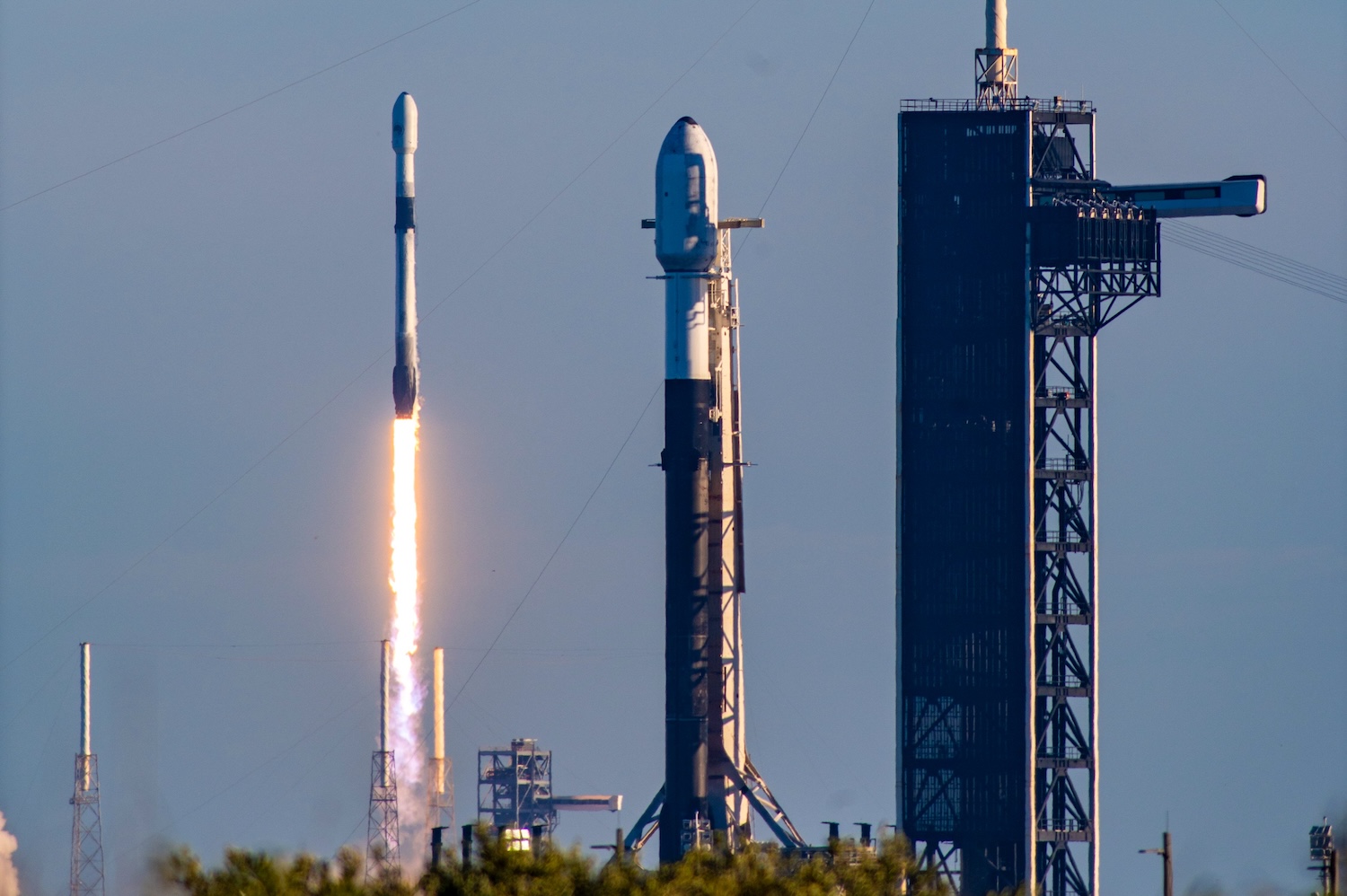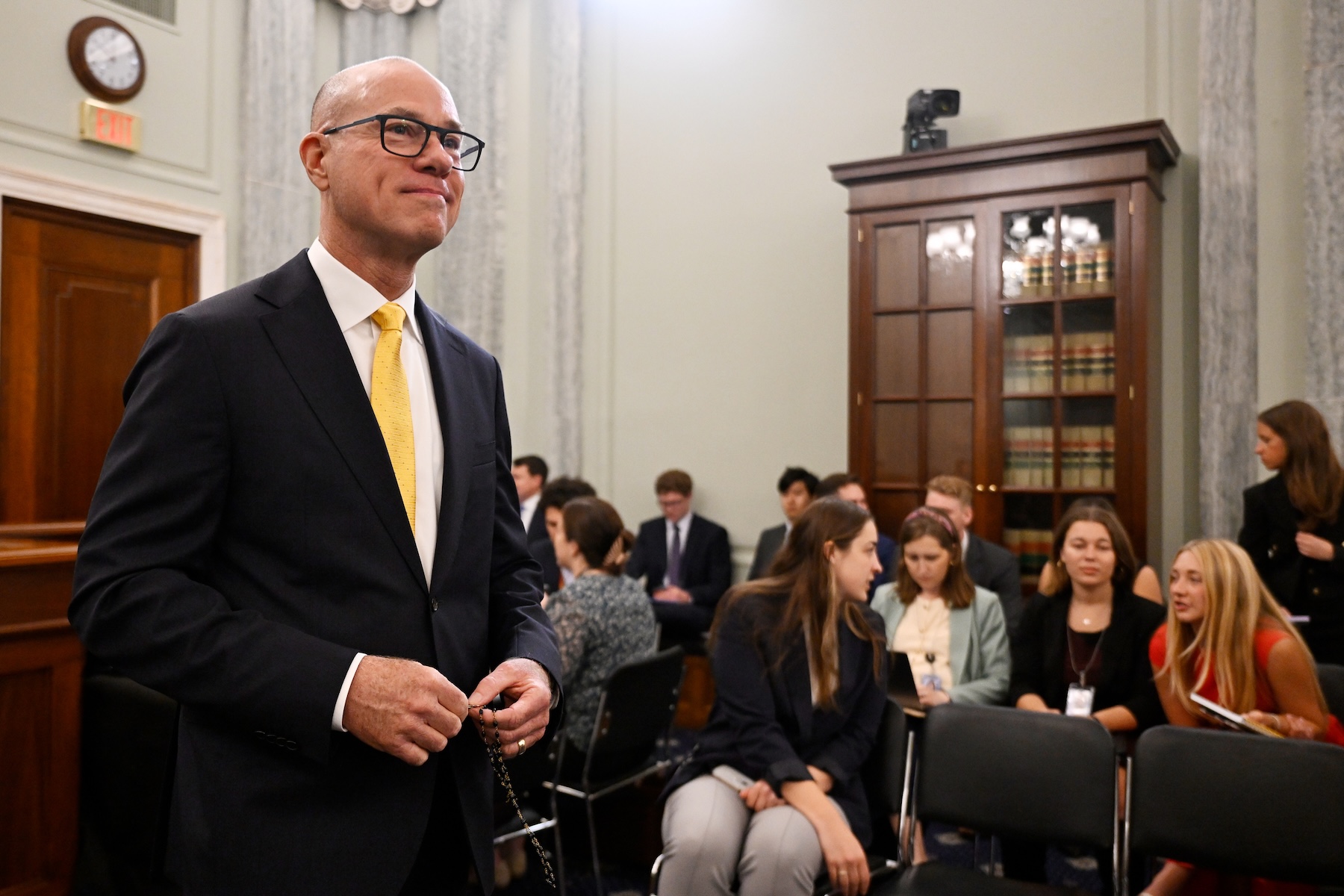Some space companies aren't necessarily against this idea, but SpaceX hasn't spoken.
Starship soars through the stratosphere. Credit: Stephen Clark/Ars Technica
The Federal Aviation Administration may soon levy fees on companies seeking launch and reentry licenses, a new tack in the push to give the agency the resources it needs to keep up with the rapidly growing commercial space industry.
The text of a budget reconciliation bill released by Sen. Ted Cruz (R-Texas) last week calls for the FAA's Office of Commercial Space Transportation, known as AST, to begin charging licensing fees to space companies next year. The fees would phase in over eight years, after which the FAA would adjust them to keep pace with inflation. The money would go into a trust fund to help pay for the operating costs of the FAA's commercial space office.
The bill released by Cruz's office last week covers federal agencies under the oversight of the Senate Commerce Committee, which he chairs. These agencies include the FAA and NASA. Ars recently covered Cruz's proposals for NASA to keep the Space Launch System rocket, Orion spacecraft, and Gateway lunar space station alive, while the Trump administration aims to cancel Gateway and end the SLS and Orion programs after two crew missions to the Moon.
The Trump administration's fiscal year 2026 budget request, released last month, proposes $42 million for the FAA's Office of Commercial Space Transportation, a fraction of the agency's overall budget request of $22 billion. The FAA's commercial space office received an almost identical funding level in 2024 and 2025. Accounting for inflation, this is effectively a budget cut for AST. The office's budget increased from $27.6 million to more than $42 million between 2021 and 2024, when companies like SpaceX began complaining the FAA was not equipped to keep up with the fast-moving commercial launch industry.
The FAA licensed 11 commercial launch and reentry operations in 2015, when AST's budget was $16.6 million. Last year, the number of space operations increased to 164, and the US industry is on track to conduct more than 200 commercial launches and reentries in 2025. SpaceX's Falcon 9 rocket is doing most of these launches.
While the FAA's commercial space office receives more federal funding today, the budget hasn't grown to keep up with the cadence of commercial spaceflight. SpaceX officials urged the FAA to double its licensing staff in 2023 after the company experienced delays in securing launch licenses.

In the background, a Falcon 9 rocket climbs away from Space Launch Complex 40 at Cape Canaveral Space Force Station, Florida. Another Falcon 9 stands on its launch pad at neighboring Kennedy Space Center awaiting its opportunity to fly.
Adding it up
Cruz's section of the Senate reconciliation bill calls for the FAA to charge commercial space companies per pound of payload mass, beginning with 25 cents per pound in 2026 and increasing to $1.50 per pound in 2033. Subsequent fee rates would change based on inflation. The overall fee per launch or entry would be capped at $30,000 in 2026, increasing to $200,000 in 2033, and then adjusted to keep pace with inflation.
The Trump administration has not weighed in on Cruz's proposed fee schedule, but Trump's nominee for the next FAA administrator, Bryan Bedford, agreed with the need for launch and reentry licensing fees in a Senate confirmation hearing Wednesday. Most of the hearing's question-and-answer session focused on the safety of commercial air travel, but there was a notable exchange on the topic of commercial spaceflight.
Cruz said the rising number of space launches will "add considerable strain to the airspace system" in the United States. Airlines and their passengers pay FAA-mandated fees for each flight segment, and private owners pay the FAA a fee to register their aircraft. The FAA also charges overflight fees to aircraft traveling through US airspace, even if they don't take off or land in the United States.
"Nearly every user of the National Airspace System pays something back into the system to help cover their operational costs, yet under current law, space launch companies do not, and there is no mechanism for them to pay even if they wish to," Cruz said. "As commercial spaceflight expands rapidly, so does its impact on the FAA's ability to operate the National Airspace System. This proposal accounts for that."
When asked if he agreed, Trump's FAA nominee suggested he did. Bedford, president and CEO of Republic Airways, is poised to take the helm of the federal aviation regulator if he passes Senate confirmation.

Bryan Bedford is seen prior to his nomination hearing before the Senate Commerce Committee to lead the Federal Aviation Administration on June 11, 2025. Credit: Craig Hudson For The Washington Post via Getty Images
The FAA clears airspace of commercial and private air traffic along the flight corridors of rockets as they launch into space, and around the paths of spacecraft as they return to Earth. The agency is primarily charged with ensuring commercial rockets don't endanger the public. The National Airspace System (NAS) consists of 29 million square miles of airspace over land and oceans. The FAA says more than 45,000 flights and 2.9 million airline passengers travel through the airspace every day.
Bedford said he didn't want to speak on specific policy proposals before the Trump administration announces an official position on the matter.
"But I'll confirm you're exactly right," Bedford told Cruz. "Passengers and airlines themselves pay significant taxes. ... Those taxes are designed to modernize our NAS. One of the things that is absolutely critical in modernization is making sure we design the NAS so it can accommodate an increased cadence in space launch, so I certainly support where you're going with that."
SpaceX would be the company most affected by the proposed licensing fees. The majority of SpaceX's missions launch the company's own Starlink broadband satellites aboard Falcon 9 rockets. Most of those launches carry around 17 metric tons (about 37,500 pounds) of usable payload mass.
A quick calculation shows that SpaceX would pay a fee of roughly $9,400 for an average Starlink launch on a Falcon 9 rocket next year if Cruz's legislation is signed into law. SpaceX launched 89 dedicated Starlink missions last year. That would add up to more than $800,000 in annual fees going into the FAA's coffers under Cruz's licensing scheme. Once you account for all of SpaceX's other commercial launches, this number would likely exceed $1 million.
Assuming Falcon 9s continue to launch Starlink satellites in 2033, the fees would rise to approximately $56,000 per launch. SpaceX may have switched over all Starlink missions to its giant new Starship rocket by then, in which case the company will likely reach the FAA's proposed fee cap of $200,000 per launch. SpaceX hopes to launch Starships at lower cost than it currently launches the Falcon 9 rocket, so this proposal would see SpaceX pay a significantly larger fraction of its per-mission costs in the form of FAA fees.
Industry reaction
A senior transportation official in the Biden administration voiced tentative support in 2023 for a fee scheme similar to the one under consideration by the Senate. Michael Huerta, a former FAA administrator during the Obama administration and the first Trump administration, told NPR last year that he supports the idea.
"You have this group of new users that are paying nothing into the system that are an increasing share of the operations," Huerta said. "I truly believe the current structure isn't sustainable."
The Commercial Spaceflight Federation, an industry advocacy group that includes SpaceX and Blue Origin among its membership, signaled last year it was against the idea of creating launch and reentry fees, or taxes, as some industry officials call them. Commercial launch and reentry companies have been excluded from FAA fees to remove regulatory burdens and help the industry grow. The federation told NPR last year that because the commercial space industry requires access to US airspace much less often than the aviation industry, it would not yet be appropriate to have space companies pay into an FAA trust fund.
SpaceX did not respond to questions from Ars on the matter. United Launch Alliance would likely be on the hook to become the second-largest payer of FAA fees, at least over the next couple of years, with numerous missions in its backlog to launch massive stacks of Internet satellites for Amazon's Project Kuiper network from Cape Canaveral Space Force Station in Florida.
A ULA spokesperson told Ars the company is still reviewing and assessing the Senate Commerce Committee's proposal. "In general, we are supportive of fees that are affordable, do not disadvantage US companies against their foreign counterparts, are fair, equitable, and are used to directly improve the shared infrastructure at the Cape and other spaceports," the spokesperson said.
.png)




